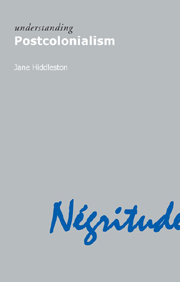Book contents
- Frontmatter
- Contents
- Acknowledgements
- 1 Introduction
- 2 Fanon and Sartre: colonial Manichaeism and the call to arms
- 3 Decolonization, community, nationalism: Gandhi, Nandy and the Subaltern Studies Collective
- 4 Foucault and Said: colonial discourse and Orientalism
- 5 Derrida and Bhabha: self, other and postcolonial ethics
- 6 Khatibi and Glissant: postcolonial ethics and the return to place
- 7 Ethics with politics? Spivak, Mudimbe, Mbembe
- 8 Conclusion: neocolonialism and the future of the discipline
- Questions for discussion and revision
- Guide to further reading
- Bibliography
- Index
4 - Foucault and Said: colonial discourse and Orientalism
- Frontmatter
- Contents
- Acknowledgements
- 1 Introduction
- 2 Fanon and Sartre: colonial Manichaeism and the call to arms
- 3 Decolonization, community, nationalism: Gandhi, Nandy and the Subaltern Studies Collective
- 4 Foucault and Said: colonial discourse and Orientalism
- 5 Derrida and Bhabha: self, other and postcolonial ethics
- 6 Khatibi and Glissant: postcolonial ethics and the return to place
- 7 Ethics with politics? Spivak, Mudimbe, Mbembe
- 8 Conclusion: neocolonialism and the future of the discipline
- Questions for discussion and revision
- Guide to further reading
- Bibliography
- Index
Summary
The work of Michel Foucault is a useful forerunner to postcolonial philosophy in its groundbreaking dissection of the relation between power and knowledge. The Subaltern Studies historians argue that both colonial and bourgeois elitist power structures are at work within historical writing on colonialism and nationalism in India, since the exclusion of the subaltern from his own history mirrors his economic and political subjugation. It is Foucault, however, who establishes a full-blown theory of the intersection between the production and dissemination of knowledge on the one hand, and the operation and expansion of power structures on the other. Foucault's philosophy invents a unique mode of analysis, which he terms “archaeology”, and which retains as its goal the exploration of how knowledge operates as a part of a system or network propped up by social and political structures of power. This means that the creation and use of knowledge itself is political, and can serve to propagate and reinforce the social marginalization and oppression of those who do not conform to the norms of the dominant discourse. In exploring the potentially totalitarian, or at least authoritarian, effects of discourse and representation, moreover, Foucault crucially opens the way for thinkers such as Said to uncover the forms and uses of colonial knowledge.
In drawing on Foucault, however, Said moves away from both the revolutionary fervour and the empiricism encountered so far, and examines the academic study of the Orient, together with the fantasized images of colonial territories that seep into cultural representation, and the ways in which these feed into the politics of the colonial mission.
- Type
- Chapter
- Information
- Understanding Postcolonialism , pp. 76 - 97Publisher: Acumen PublishingPrint publication year: 2009
- 2
- Cited by

